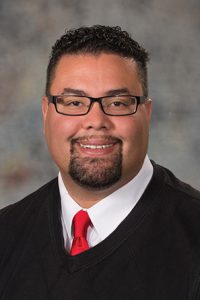Land bank changes proposed
Land banks would face more restrictions under a bill considered Feb. 11 by the Urban Affairs Committee.
A land bank is a tax-exempt political subdivision that may acquire, manage and develop vacant and tax-delinquent properties under the Nebraska Municipal Land Bank Act.

LB1178, introduced by Omaha Sen. Justin Wayne, would prohibit land banks from entering into agreements with nonprofit corporations or other private entities for the purposes of temporarily holding real property for those nonprofit corporations or private entities.
The bill would not affect properties already held by a land bank.
Wayne said he introduced the bill after learning that the Omaha Municipal Land Bank had purchased properties on behalf of a nonprofit to hold for up to five years. The properties remain dilapidated and unable to be sold while being held, he said.
“The original intent [of the land bank act] was to move property,” Wayne said. “The land bank was never designed to be a bank.”
Juan Alvirado, a property developer in Omaha, testified in support of the bill. He said LB1178 would make the process of acquiring property fairer and align the Omaha land bank with its intended purpose.
“Why would it be fair for them to hold property when I have to bring liquid cash?” Alvirado said.
Shaun Ilahi of Habitat for Humanity of Omaha testified against LB1178 because, he said, it would hamper development in north Omaha. Holding a property for a few years allows tax and demolition liens on a property to be cleared, he said, making it easier to develop.
“We do not have the power to clear title issues or acquire ownership of properties,” Ilhai said.
Mike Riedmann of the Omaha Municipal Land Bank also spoke against the bill. He said the land bank often will acquire properties with significant liens that otherwise would not be developed.
“Not only do we have nonprofits provide affordable housing, but the land bank also receives—from Douglas County—50 percent of the taxes paid on these properties for five years after being deeded back to the nonprofit,” Riedmann said. “This revenue stream is very important to the land bank.”
The committee took no immediate action on the bill.

